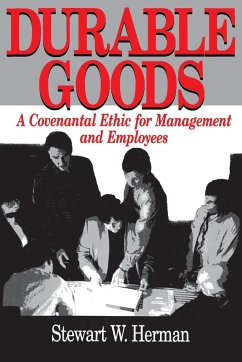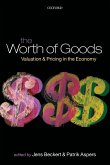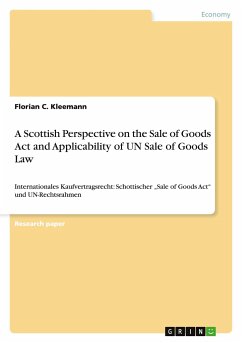Perhaps no other aspect of business ethics is today more germane to Christian belief and practice than the quality of relationship between management and employees. Here the raw forces of the global market and the more subtle currents of power relations within corporations have tangible impacts upon millions of lives. How can managers and employees work together toward an atmosphere of mutual trust and fairness? For people of faith, what does it mean to covenant under conditions of recurrent labor conflict? What moral claims are evident in the long struggle by management to run their enterprises as they see fit, as opposed by the efforts of employees to achieve a collective voice through unions? By melding the biblical account of covenant with a social-scientific understanding of organizations, Stewart W. Herman presents a groundbreaking theory. Herman examines the strategies and tactics which management and employees have used to control each other. He explores the deep historical roots and complexities of the management-employee relationship in the US, taking into account the initiatives and responses of both sides during the past two hundred years. As this narrative unfolds, the rudiments of a covenant become evident, not in a steady evolution, but in a turbulent intertwining of achievement with failure. The author tracks the development of two enduring goods which have emerged tentatively in this history: the enlarged freedom both management and employees have gained by seeking cooperation from each other, and the respect they have internalized for the moral principles central to the action of each other. Genuine cooperation requires that the moral claims of both sides must receive impartial consideration. To achieve such fairness, this book sets aside both the easy optimism of managerial ideology and the pessimism of disillusioned employees and takes an unsparing look at labor-management history in light of the long covenanting experience narrated in the Bible. In both histories, genuine cooperation emerges from a passionate dialectic between ideal possibilities and realistic human limitations. This shared struggle engages the will and spirit-and the creativity and insight-of both managers and employees. In Durable Goods, the disciplines of biblical theology, organization theory and labor history cross-fertilize to produce a rich harvest of insight about the nature and costs of genuine cooperation between management and employees. Those who teach in the fields of business and Christian ethics as well as business and labor leaders will find here a lucid guide for discerning the possibilities and limits upon covenantal cooperation in the employment relation.
Hinweis: Dieser Artikel kann nur an eine deutsche Lieferadresse ausgeliefert werden.
Hinweis: Dieser Artikel kann nur an eine deutsche Lieferadresse ausgeliefert werden.








